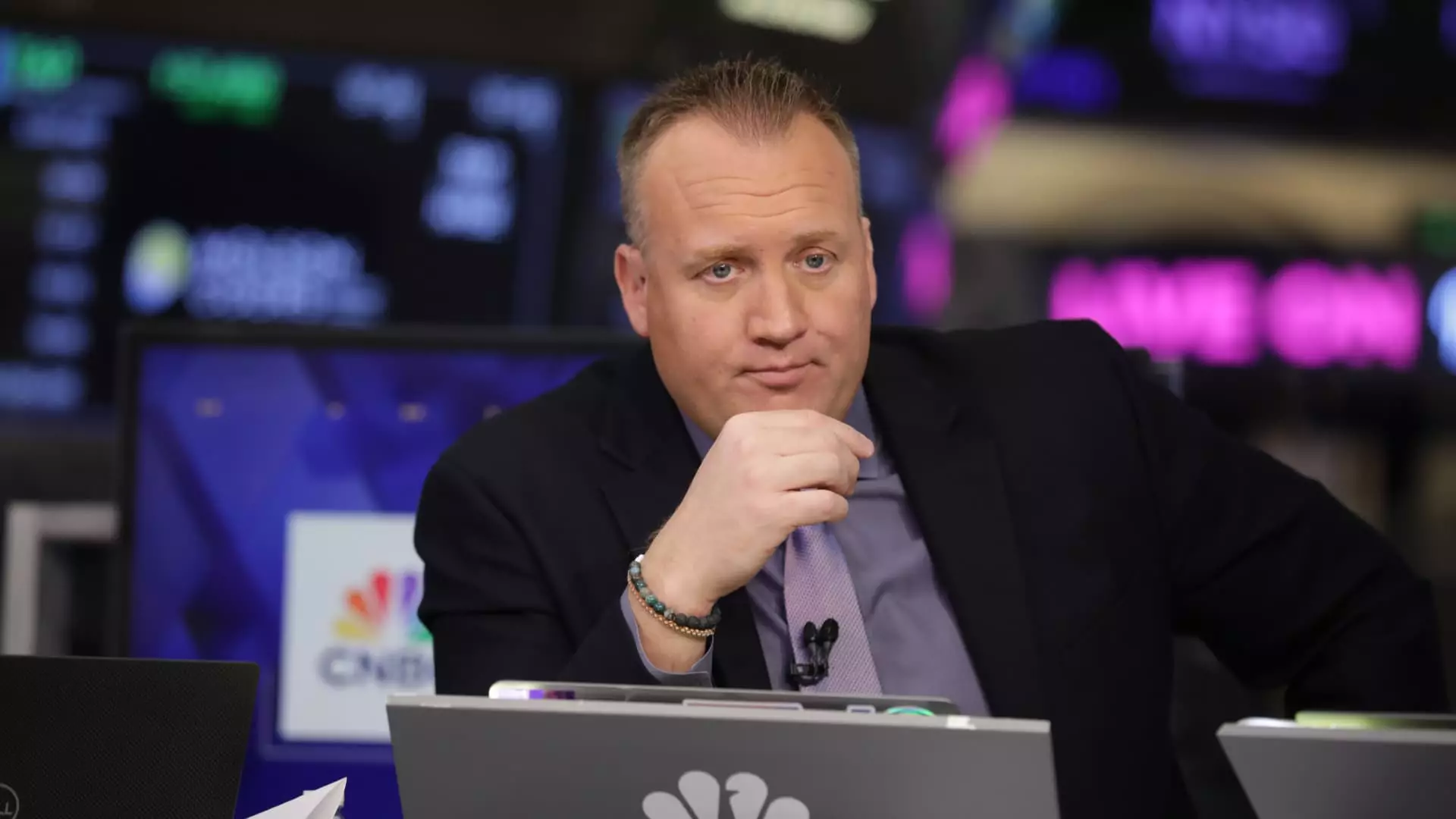When a leading figure in wealth management like John Brown voices skepticism about a technology titan, it’s worth listening closely. In recent commentary, Brown raised a significant concern surrounding Alphabet Inc., Google’s parent company. The catalyst for his bearish outlook? Apple’s assertion that AI tools will disrupt traditional search engines. We find ourselves at a unique juncture: for the first time, Google is genuinely competing to retain its dominance in search. This predicament is alarming, particularly given the preferences of Gen Z, who increasingly gravitate toward AI platforms like ChatGPT for information. The question looms larger: is Google preparing to refocus its priorities or simply grappling with the realities of new age consumer behavior?
Brown’s observation about Google’s previous stronghold—essentially a ‘money printing machine’—is now undergoing a painful transformation. The monopoly wasn’t just about revenue; it provided a security blanket against market turbulence. However, as younger demographics search elsewhere, we must consider the durability of Google’s competitive edge. If Alphabet cannot recalibrate its approach, the consequences might be far-reaching, not just for the company but for the tech ecosystem as a whole.
Cyber Security: CrowdStrike Leading the Charge
Switching gears from the uncertainty of tech giants, Brown gave an enthusiastic endorsement to CrowdStrike, a standout in the cybersecurity realm. Citing a staggering 23% increase in Annual Recurring Revenue (ARR), Brown highlights a refreshing narrative amid a landscape often peppered with distrust. In a time when cybersecurity is more essential than ever, CrowdStrike is emerging as an indispensable player.
What’s truly striking, however, is the relative immunity of this stock from the broader market swings that define technology investments. As data breaches and security threats skyrocket, the need for robust cybersecurity becomes paramount. Brown’s confidence suggests that investors who still view tech stocks as uniformly risky might be overlooking a vital sector poised for continued growth. CrowdStrike isn’t just riding the wave; it’s setting a precedent for how cybersecurity companies can respond to an escalated demand for their services.
Uber’s Evolution: Price, Convenience, and Survival
In his dissection of Uber, Brown identifies a turning point in consumer attitudes. The market is beginning to comprehend that the essence of mobility is not merely about the number of apps available or even diversified services; it is fundamentally about value. As ride-sharing becomes a crowded market, the true differentiators are price, convenience, and speed — factors that directly affect consumer loyalty.
What stands out is Brown’s intuition regarding the autonomous vehicle narrative. Although the industry stands on the cusp of a technological revolution, it is noteworthy that consumers still prioritize practical values over flashy tech. This pragmatic shift in demand indicates that companies like Uber must navigate smartly through their evolution; the relentless pressure for profitability will inevitably determine if they can survive the competition.
Reddit’s Dilemma: A Platform in Transition
In a surprising twist, Brown’s analysis also encompassed Reddit, where he expressed skepticism, correlating its challenges with those Faced by Alphabet. Despite Reddit’s previous prominence in search rankings, it faces a fundamental contradiction in its market positioning. How can a platform that dominated search results become concurrently described as a ‘tech stock’ that is faltering?
This duality reflects the complexities inherent in newer social media platforms. While Reddit once thrived on the organic content generation model, it now grapples with maintaining relevance in a saturated landscape. As search engines and social media evolve, Reddit must carve out a value proposition that not only retains its user base but also attracts advertisers in a digital economy that increasingly values integrated, AI-driven user engagement.
Berkshire Hathaway: A Steady Hand in Uncertainty
On the other end of the spectrum, we see Berkshire Hathaway, an entity that seems to defy the gravitational pull of market anxiety. Despite Warren Buffett’s impending transition from CEO, Brown offers an optimistic perspective on the company’s succession plan as a “model of continuity.”
With decades of wisdom filtering through its investment strategies, Berkshire represents a bastion of stability in an often volatile stock market. This is not merely about Buffett; it’s a testament to a well-structured corporate ethos that allows for smooth transitions without sudden disruptions. Brown’s endorsement signals to investors that Berkshire Hathaway is not just a holding company under the glare of Buffett’s legacy; it’s a fortified institution prepared to weather the storm.
Shake Shack: Fast Food’s Strategic Expansion
Lastly, Brown exudes enthusiasm for Shake Shack, citing optimism around its growth strategy. The fast-food sector offers tantalizing opportunities for companies willing to innovate and expand strategically. Shake Shack has demonstrated a unique ability to blend quality with fast-casual convenience, setting it apart from traditional competitors.
In a landscape where consumer preferences shift rapidly, the company’s adaptability could prove crucial. Brown’s bullish stance serves as a reminder that in the saturated fast-food market, innovation and strategic foresight often pave the way for sustained success.

